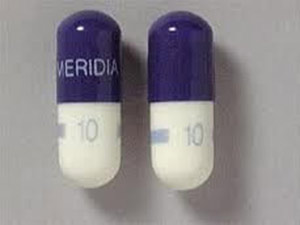Quick Cure Pharma


MERIDIA 10MG
PRICE:
$300.00 – $850.00Price range: $300.00 through $850.00
Use Qrcode
- Meridia is a prescription medication for weight management in adults.
- Available dosages: 10mg and 15mg.
- Affects neurotransmitters to reduce appetite and increase fullness.
- Part of a comprehensive weight-loss program with diet and exercise.
- Common side effects include dry mouth, insomnia, and increased blood pressure.
- Use under a healthcare professional’s supervision for safety.
- Regular monitoring is essential to minimize risks and side effects.
- Fast and discreet delivery with affordable pricing options.
FAQs
Depending on the destination of the delivery ,It normally takes 1-3 days for a product to be delivered to a location after being purchased .Incase of any delay we will let the customer know the situation via e-mail.
Any Orders paid before 10:00 AM (PST) will ship the same business day. Any orders paid for after 10:00 AM (PST) will be shipped the following business day (Excluding Holidays)
If you haven’t received your tracking code , its most likely that you haven’t paid or complete your payment for your order. In which case you should do so,then your order will be processed and you will receive your tracking. But if you made complete payment but still havent received your tracking code, then contact support on live chat please
Incase you don’t have any of the listed payment methods and still want to make payment via another method you have, please contact our surpport agent on our live chat app and know if we accept that kind of payment
FAQs
MERIDIA 10MG
MERIDIA 10MG SIDE EFFECTS
You’ve probably heard about Meridia if you’re a patient or a member of the medical community. You may have been curious about how to take Meridia and any adverse effects. The way Meridia functions is by modifying specific neurotransmitters in the brain. To understand more about this drug, continue reading. The patient’s blood pressure and heart rate will determine the patient’s following dosages after the initial 15 mg dose. 10 mg of Meridia
MERIDIA DOSAGE
Follow the instructions on your prescription label when using Meridia. Meridia can have certain negative effects even if it is a successful treatment for insomnia. Constipation, increased perspiration, dry mouth, and elevated heart rate are a few of these symptoms. Most of these side effects are minor and won’t prevent you from continuing to take Meridia. If you take less than 10 mg of Meridia every day, you can occasionally encounter less severe side effects.
MERIDIA SIDE EFFECTS
An anti-obesity medication called Meridia is used to lessen obesity. It has been linked to several negative effects, such as a rise in blood pressure and heart rate, as well as lightheadedness and dizziness. The operation of platelets may also be impacted. The drug’s use may be stopped due to these negative effects. Taking MERIDIA is not advised for anyone with heart problems or kidney failure.
MERIDIA INTERACTIONS WITH OTHER MEDICATIONS
Meridia may interact improperly with other medicines. This is why it’s crucial to discuss any possible interactions with your doctor before using the medication. It’s also critical to remember that using this medication while pregnant or breast-feeding is not advised.
SIBUTRAMINE AFFECTS NEUROTRANSMITTERS IN THE BRAIN
Sibutramine is a psychoactive drug used to treat neuropsychiatric disorders. It works by stabilizing secondary effects of neuropsychiatric disorders by dampening abnormal impulses from limbic structures, the temporal lobe, and the motor areas. It is often used in combination with other drugs.
MERIDIA IS NOT RECOMMENDED FOR OBESE PATIENTS WITH A BMI >= 30 KG/M2
The Food and Drug Administration (FDA) recommends against prescribing Meridia for obese patients with a BMI greater than 30 kg/m2. This drug, which contains sibutramine, may increase the risk of cardiovascular events in these patients. In fact, the FDA recently requested that Meridia maker Abbott Laboratories stop marketing the drug in the United States.
MERIDIA CAN CAUSE MYDRIASIS
If you have experienced an increase in blood pressure or heart rate while taking MERIDIA, you may want to stop taking the drug and contact your physician. Meridia can cause serious side effects and should not be used if you have cardiovascular disease.
IT IS NOT KNOWN WHETHER SIBUTRAMINE PASSES INTO BREAST MILK
The FDA has not evaluated whether Meridia 10mg passes into breast milk and is not recommended for women who are pregnant or breastfeeding. Women who plan to use this medication should tell their doctor if they are pregnant or nursing.
| Quantity |
|---|
Related products

 Hot
Hot

 Hot
Hot

 Hot
Hot

Reviews
There are no reviews yet.